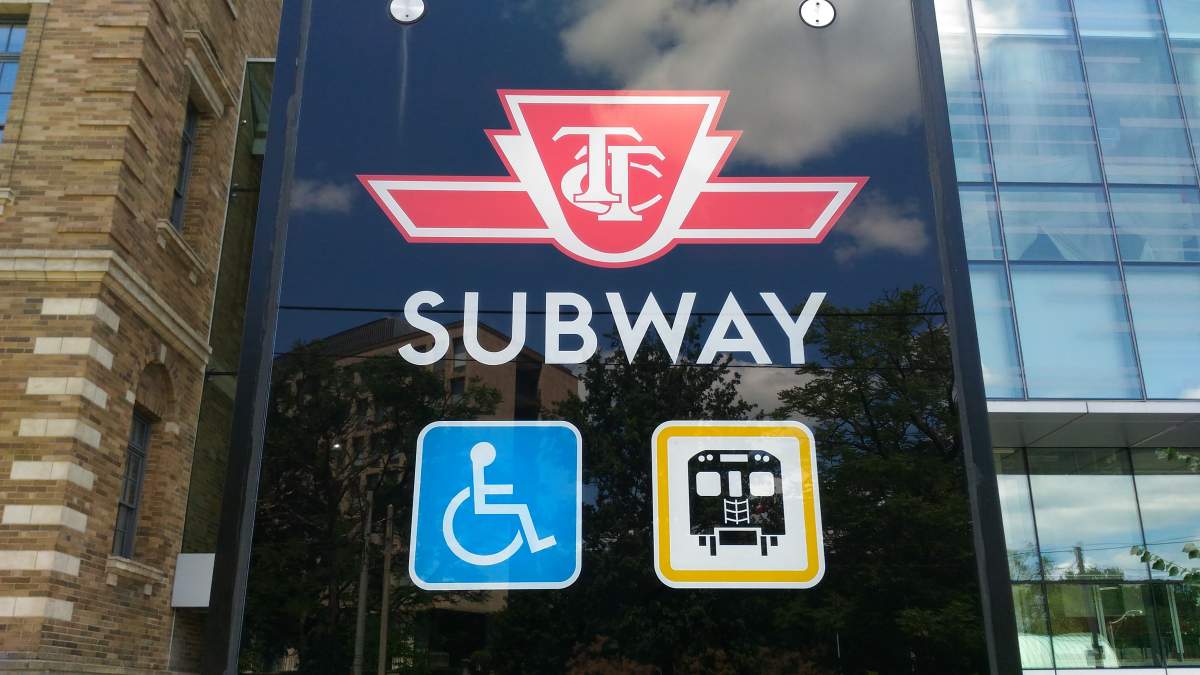A new study suggests that daily rides on public transit may be contributing to long-term hearing loss.

The research, conducted for the Journal of Otolaryngology – Head & Neck Surgery, says although noise levels from the Toronto transit system are within acceptable levels of safe noise exposure, frequent cumulative exposure could place individuals at risk for noise-induced hearing loss.
“We measured lots of decibel levels on the subway, buses and streetcars and found that at peak values, the amount of noise could be quite loud and repeat exposure over the long term could damage your hearing,” associate scientist Dr. Vincent Lin of Sunnybrook Hospital told AM640.
LISTEN: Global News Anchor Alan Carter filling in for Kelly Cutrara talks to Dr. Vincent Lin of Sunnybrook Hospital
Lin said the concern is with peak exposures, which in some of the testing, measures way above the 85-decibel limit for safe prolonged exposure with some occurrences checking in as high as 115 decibels.

Get weekly health news
“Even though those exposures are short, that’s a very loud value. That’s the equivalent to a lawnmower or heavy machinery being close to your ears. The short bursts still can be quite damaging.”
Generally, the levels were highest not while riding transit, but standing on platforms with vehicles passing by.
READ MORE: Residents unhappy with overnight construction noise due to Gardiner ramp demolition
Standing on a subway platform provides the greatest overall noise level compared to buses and streetcars pumping out an average of 79.8 decibels compared to 78.1 and 71.5 decibels respectively.
However, when it came to peak noise, passing buses had the greater average with tests recording 112.3 decibels compared to 109.8 for the subway and 108.6 on streetcar routes.
Lin says the research showed that older TTC subway platforms provided higher noise levels compared to the more modern locations. Stations along the Bloor line like Keele, Dufferin, Spadina and Bay stations were found to have the loudest platforms.
“Back in the era when they were built, the whole concept of soundproofing was not as advanced as current engineering,” said Lin.
When it comes to the commuters who are most vulnerable to hearing loss in the downtown core, the study says cyclists have the most to be concerned about.
Numbers showed that bicycle riders are exposed to noise that exceeds safe limits at an average of about 14 per cent.
READ MORE: Sound-emitting devices in downtown Toronto parkette removed after complaints
However, Lin said anyone who commutes on streets in the core is exposed to very high environmental sounds.
“Most of us who commute around the city are aware of the environmental noises like jackhammering, construction and crowd noises. That can be quite loud.”
In terms of what one can do about limiting exposure, Lin says carrying around a set of simple mobile earbuds can help as long as you don’t blast music too loud.
“A little bit of prevention can prolong hearing in the long run.”














Comments